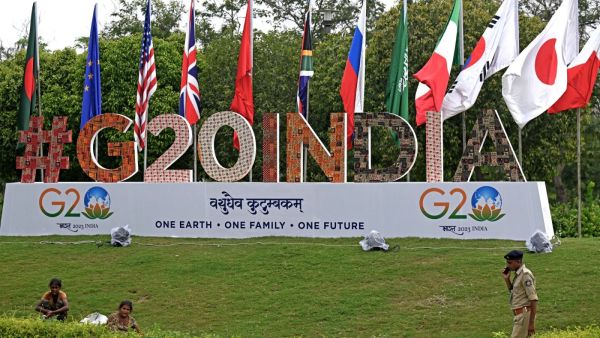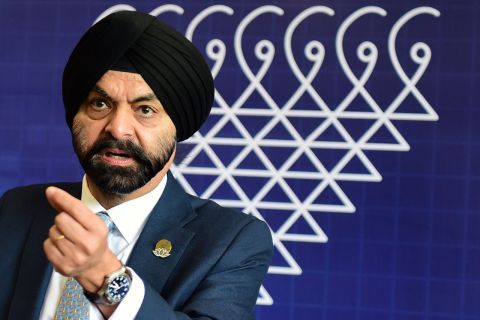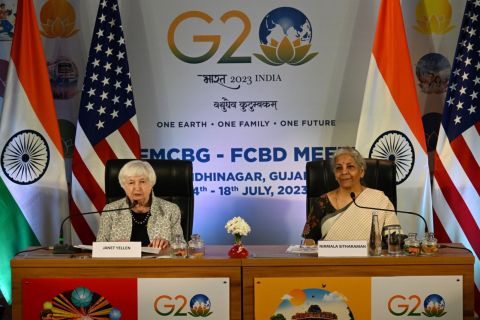Ministers at G20 India agree on 22 out of 29 items on agenda
ALBAWABA – The Group of 20 (G20) energy, climate and economy ministers meeting at the G20 India summit failed Saturday to arrive at a consensus on phasing down fossil fuels and boosting renewable energy capacity, news agencies reported.
Russia and Saudi Arabia both blocked an agreement to triple renewable energy generation capacity by 2030, as German and Russian ministers sparred over the energy crisis and the Ukraine-Russia war.

According to Bloomberg, German Economy Minister Robert Habeck assailed Russian First Deputy Energy Minister Pavel Sorokin for promoting a “twisted worldview” on the origins of the energy crisis, and the war in Ukraine.
Habeck, also Germany’s minister for climate action, attended the meeting as a final stop on a three-day trip to India leading a delegation of German lawmakers and business leaders.
On the other hand, the summit did achieve a unanimous consensus on mobilizing low-cost finance for energy transition, development of technologies such as clean hydrogen and energy storage. In addition to providing universal access to energy, according to the meeting document, as reported by Bloomberg.
But sections on developed countries delivering on the goal of jointly mobilising $100 billion per year for climate action in developing economies from 2020-2025 were not agreed on, according to Reuters. Nor was the description of the war in Ukraine.
This, along with the discord over the 2030 renewable energy capacity proposal resulted in officials issuing an outcome statement and chair summary instead of a joint communique.
A joint communique is usually issued when there is complete agreement between member nations on all issues in such a summit.
"We had a complete agreement on 22 out of 29 paragraphs, and seven paragraphs constitute the Chair summary," Indian Power Minister R.K. Singh said.
Diverging views on climate action at G20 India
“A couple of countries from the Middle East felt that emission concerns could be addressed by technologies like carbon capture, use and sequestration (CCUS) or other abatement technologies,” Raj Kumar Singh, India’s power minister, told reporters after the meeting. “Both pathways are fine.”
The summit also agreed to consider blue hydrogen — produced in a process that emits carbon dioxide which is sequestered — at par with green hydrogen.
Fossil fuels became a central topic in day-long discussions. Yet, officials failed to reach consensus over curbing "unabated" use and argued over the language to describe ways to cut emissions, unnamed sources told Reuters.

The summit convened as extreme weather scourged parts of Europe, Asia and the United States (US), including heat waves that have toppled temperature records and led to deaths in India and elsewhere.
That’s prompted demands for more urgency in climate action, according to Reuters, and for nations to make a greater commitment to limit the rise in global temperatures to 1.5 degrees celsius.









